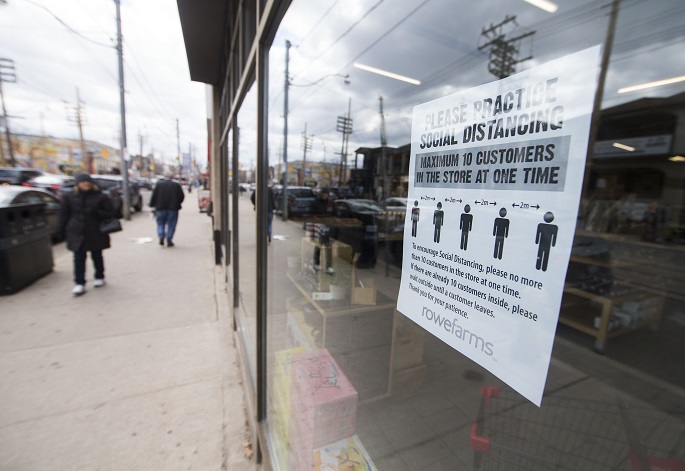Total fatalities near 800
Canada's long-term care homes badly hit by coronavirus
Published : 14 Apr 2020, 11:16
As of Monday night, Canada reported 780 COVID-19 deaths, half of which were linked to long-term care facilities, making coronavirus-related fatalities a real public health concern for the country.
The latest data was confirmed by Canadian Chief Public Health Officer Theresa Tam at a press conference on Monday.
"The key lessons learned from this pandemic is that we really need to improve on infection-prevention control, and how we manage to protect visitors, volunteers, healthcare providers and staff," Tam said.
According to Tam, senior residents of long-term care homes are vulnerable to infections due to their communal living spaces, shared health care providers, exposure to external visitors, and transfers from other health care facilities.
On Monday, Canada's Public Health Agency released guidelines for long-term care facilities or nursing homes, which include recommendations to screen residents for COVID-19 daily and before staff begin their shifts, as well as limitations for visitors.
However, these are only suggestions since Canada's 10 provinces and three territories administer and deliver healthcare services in their jurisdictions.
The absence of any nationwide rules is taking a brutal toll on Canada's elderly as not all residents in long-term care homes are being tested and some staff work in more than one facility.
On Monday alone, one nursing home just outside of the national capital city of Ottawa saw two more deaths among its residents, bringing the total count to 16.
Almonte Country Haven, one of the 86 long-term care facilities in Canada's largest province of Ontario battling COVID-19 outbreaks, have reported nearly 120 coronavirus-related deaths among its residents.
In Montreal, 31 deaths since the end of March at one senior's residence has sparked accusations of negligience by the provincial government. The residence fired back, blaming the government for failing to provide protective gear for its staff.
Canadian politicians and health officials are facing challenges of how to protect the elderly amid the COVID-19 outbreak.
On Monday morning, Ontario Premier Doug Ford announced his plan to ask the provincial legislature to extend a state of emergency, first declared on March 17, by 28 days on Tuesday.
Ford has publicly complained about the lack of availability of large-scale testing for the novel coronavirus, and the slowness of the results.
Fortunately, Spartan Bioscience, an Ottawa-based biotechnology company which specializes in DNA analysis, announced Monday that it had received approval from Canada's health ministry to produce and distribute a portable test, which uses a handheld, cube-shaped device in the size of a coffee cup, and relies on two mouth swabs to detect COVID-19 in less than one hour.
In a news release, the company said the device can be used by "non-laboratory personnel in settings such as airports, border crossings, doctors' offices, pharmacies, clinics and remote communities."
Meanwhile, Air Canada, which announced Monday that it is suspending international flights until June, is scheduled to send cargo flights to Shanghai this week to bring critical medical supplies back to Canada.
The Canadian government has set up a network to expedite imports of personal protective equipment from China, according to the Canadian Broadcasting Corporation.


